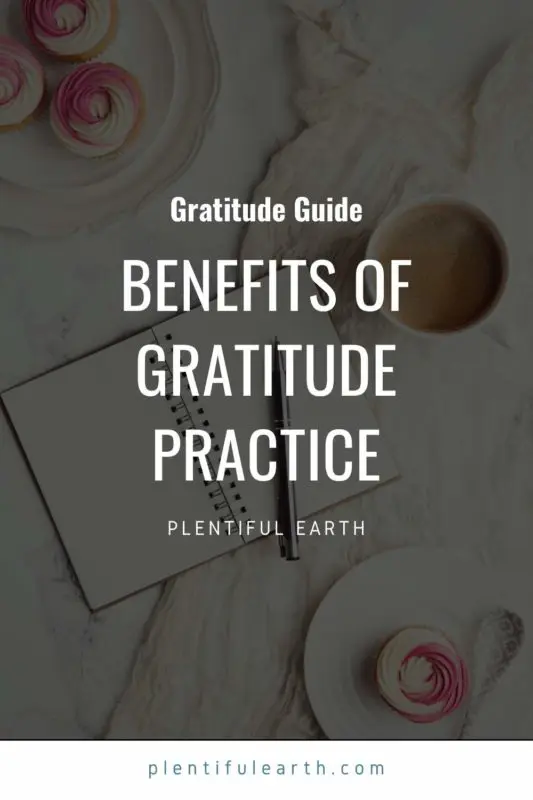The benefits of gratitude practice can make your life infinitely easier, better, and more fun.
Understanding the benefits of gratitude practice can transform your daily experiences.
When evaluating the benefits of gratitude practice, you’ll find it can lead to emotional equilibrium.
Exploring the benefits of gratitude practice unveils its remarkable impact on well-being.
Table of Contents
And if you’re just starting your spiritual journey, or if you feel everything deeply and often hold space for others, gratitude isn’t just a feel-good trend. It’s a tool for emotional balance, energetic clarity, and spiritual growth.
Many seek the benefits of gratitude practice to enhance their spiritual journeys.
Here’s what you need to know about why gratitude works, how it helps your spirit, and the easiest ways to bring it into your daily life.
What Is A Gratitude Practice?
Recognizing the benefits of gratitude practice can elevate your day-to-day experiences.
A gratitude practice is any intentional action that helps you focus on what you appreciate or value.
The profound benefits of gratitude practice can lead to significant emotional transformations.
This could be something big (like healing from a tough time) or small (like the comfort of your morning tea).

5 Spiritual & Emotional Benefits of Gratitude Practice
Helps You Feel Grounded & Safe
Gratitude calms your nervous system and helps you return to the present moment, something especially helpful if you’re sensitive to emotions or energy.

The University of California, Berkeley’s Greater Good Science Center highlights how gratitude enhances parasympathetic activity. This is the part of your nervous system responsible for rest and recovery.
This physiological shift lowers heart rate, eases muscle tension, and reduces stress hormones like cortisol. Practicing gratitude even once a week has been linked to better heart health and increased feelings of emotional safety, especially for highly sensitive people.
Raises Your Vibration
Many find that understanding the benefits of gratitude practice helps in their decision-making.
When you focus on what’s working, your energy naturally shifts. Gratitude creates a higher vibrational state, making it easier to attract more positivity and clarity.
Learning about the benefits of gratitude practice can greatly influence your healing journey.

Studies from the University of California, Davis have found that grateful individuals experience more vitality, alertness, and enthusiasm. This elevated energy isn’t just a mood lift; it supports greater overall well-being and helps you navigate your day with a lighter spirit.
Over time, consistent gratitude can reduce stress, enhance brain function, and improve your outlook on life. This vibrational shift makes it easier to align with opportunities and emotional balance.
Strengthens Intuition
A peaceful, grateful mind is more open to intuitive guidance. Many spiritual practitioners find their inner voice gets louder and more accurate when they’re grounded in appreciation.
The scientific community highlights numerous benefits of gratitude practice for mental health.

According to the University of California, Berkeley, gratitude increases activation in the medial prefrontal cortex, a region associated with learning and decision-making, which can enhance clarity in spiritual insight.
As gratitude reduces stress, it calms the emotional brain, making it easier for intuitive signals to be recognized without interference from fear or anxiety. This clear energetic space allows messages from your higher self or guides to come through more strongly and accurately.
Regular practice allows one to fully experience the benefits of gratitude practice in daily life.
Supports Emotional Healing
Studies show that the benefits of gratitude practice can greatly improve resilience.
By noticing what’s good, even during hard times, gratitude creates emotional space for hope, compassion, and healing. It doesn’t ignore pain; it balances it.
According to research from the University of Minnesota, gratitude helps reframe stressful or traumatic experiences, allowing the brain to shift from a reactive state to a reflective one. This mental shift supports the release of feel-good neurotransmitters like serotonin and oxytocin, which play a vital role in emotional healing.
For sensitive individuals, this can mean less emotional flooding and more internal stability. Over time, gratitude builds a foundation of inner safety and self-trust.
Incorporating the benefits of gratitude practice can enhance your connection to nature.
Improves Sleep and Mental Health
Studies show that writing down what you’re grateful for can reduce anxiety, improve sleep, and ease depression symptoms.
According to the University of California, Berkeley, people who practice gratitude regularly report falling asleep faster, staying asleep longer, and waking up feeling more refreshed. This is largely due to gratitude’s ability to reduce intrusive negative thoughts and improve emotional regulation before bedtime.
Additionally, a study published by the University of Manchester found that participants who scored higher in gratitude also experienced better sleep quality and lower levels of insomnia. That’s real spiritual self-care.
Thus, many seek out the benefits of gratitude practice as a vital component of self-care.
Easy Gratitude Practices to Try
Ultimately, embracing the benefits of gratitude practice can lead to a more fulfilling life. Give these gratitude practices a try!
✍️ The “3 Good Things” Method

During your favorite part of the afternoon or evening, write down three things you’re grateful for and why. This builds emotional resilience and retrains your brain to notice the good.
🍃 Nature Gratitude
During your daily walk or outdoor moment, name three things in nature you appreciate (sunlight, wind, leaves). This helps ground your energy and reconnects you to Earth.
🕯️ Ritual Gratitude with Candlelight
Before meditation or energy work, light a gratitude-focused candle. Speak your thanks aloud, even for small things. This is especially powerful before caregiving, Reiki, or holding space for others.
What To Avoid
Don’t force it. Gratitude should feel real, not like something you have to do.
If it feels forced, then you’ll experience lower benefits of gratitude practice.
Don’t skip hard emotions. Gratitude isn’t toxic positivity. You can be grateful and sad. And confused. Both can exist.
Don’t aim for a long list. Three sincere items are more powerful than ten shallow ones.
Gratitude is a powerful yet gentle tool for anyone walking a spiritual path. Whether you’re new to your practice or deeply empathic and giving to others, this simple shift in focus can help you feel more balanced, connected, and supported.
Start small. Stay honest. Let your gratitude practice meet you exactly where you are.




Pingback: 5 Easy Ways to Practice Gratitude » Plentiful Earth